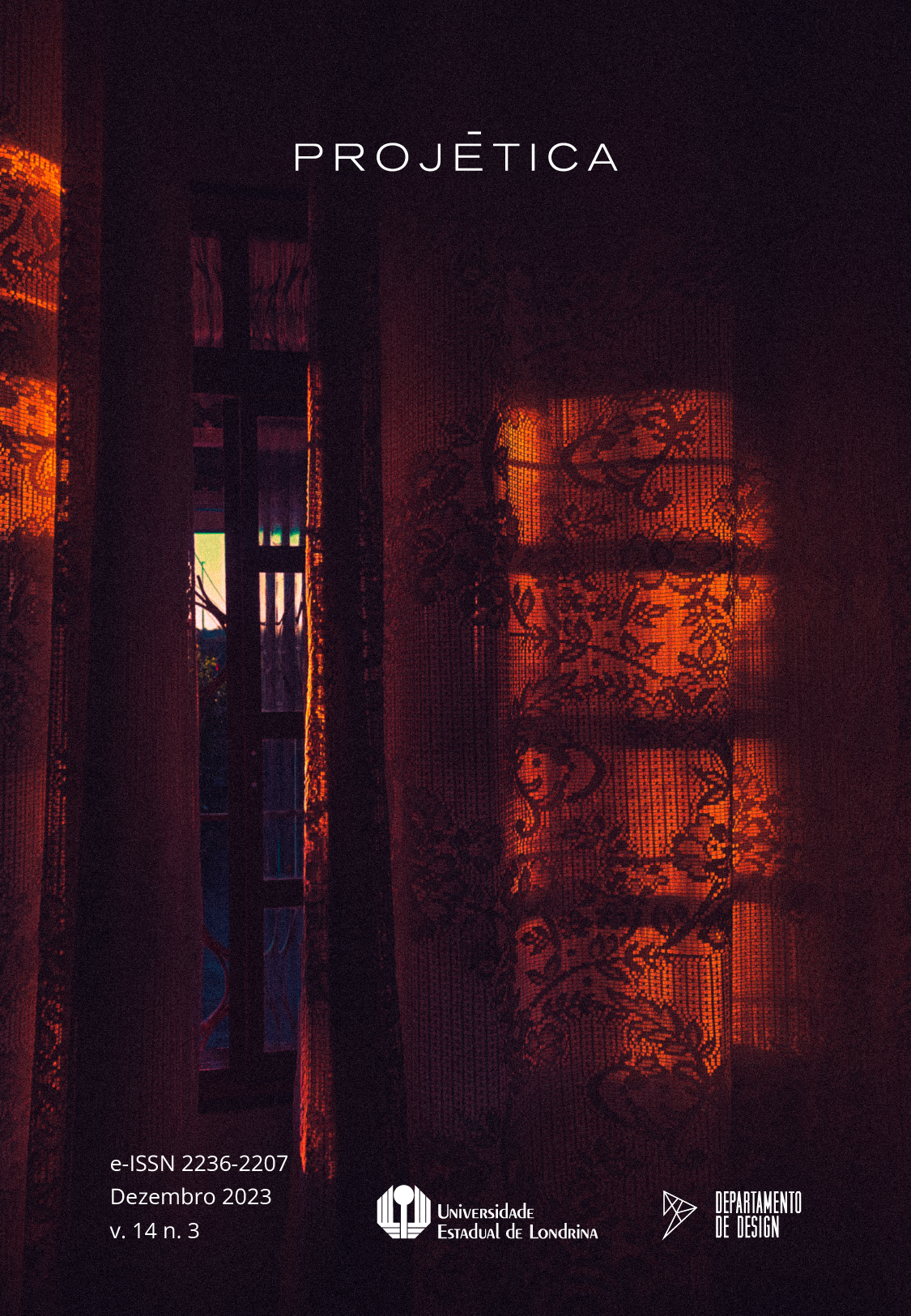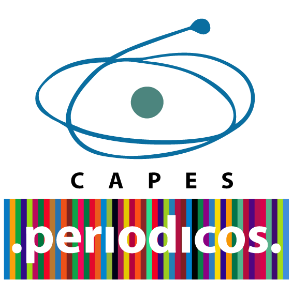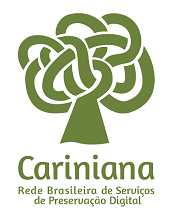Slow fashion consumption profiles
analysis of mini collections proposed by undergraduate fashion design students
DOI:
https://doi.org/10.5433/2236-2207.2023.v14.n3.48799Keywords:
slow fashion, Consumption profiles, fashion productsAbstract
Slow fashion is a movement that aims to produce and consume fashion in a more conscious and sustainable way. After the development of the "Consumer Orientation to Slow fashion" tool by Sojin Jung and Byoungho Jin - with a focus on metricizing the dimensions of Slow fashion consumption -, the work of recent years has been dedicated to identifying consumption profiles within the movement. In Brazil, profiles were defined for two states, Ceará and Rio Grande do Norte. In such a way, thinking about the formation of a Fashion Designer, understanding the public is a key part for the conformation of innovative products. With that in mind, this paper aims to expose and discuss an activity in product development, conducted in a fourth-period class of a technology higher education course in Fashion Design. The exercise consisted of selecting one of the three Slow fashion consumption profiles in Rio Grande do Norte and proposing a mini collection of up to five looks. There was a predominance of craft elements, identity, and local labor.
Downloads
References
AMARAL, Weber A. N.; OMETTO, A. R.; IRITANI, A.R; MOREIRA, Natalia. Moda circular no Brasil. Piracicaba, SP: Esalq/USP, 2019.
BAXTER, Mike. Projeto de produto. 3. ed. São Paulo: Blucher, 2011.
BENSE, Max. Pequena estética. 3. ed. São Paulo: Perspectiva, 2009.
BERLIM, Lilyan. Moda e sustentabilidade. São Paulo: Estação das Letras e Cores, 2016.
BREVE, Danilo G.; GONZAGA, Liliane S.; MENDES, Francisca D. Sustentabilidade como uma Tendência no Mercado da Moda. ModaPalavra e-periódico, Florianópolis, SC, v. 11, n. 22, p. 311-331, 2018. DOI: https://doi.org/10.5965/1982615x11222018311
CUNHA, Maria Zulmira B. A. N. Critérios de Escolha e Hábitos de Consumo do Consumidor de Produtos de Moda e Vestuário. PMKT: Revista Brasileira de Pesquisas de Marketing, Opinião e Mídia, São Paulo, v. 17, p. 24-45, out. 2015.
DANTAS, Ítalo J. M.; SILVEIRA, Nathalie B. M. Da síntese imagética à configuração da coleção de vestuário: o processo de codificação de mensagens visuais. Educação Gráfica, Bauru, SP, v. 24, n.3, p. 76-93, 2020.
DEVELLIS, Robert F.; THORPE, Carolyn T. Scale development: theory and applications. 5. ed. California: Sage Publication, 2022.
EDWARDS, Allen Louis. Techniques of attitude scale construction. Melbourne: Hassell Street Press, 2021.
ERTEKIN, Zeynep O.; ATIK, Deniz. Sustainable markets: motivating factors, barriers, and remedies for mobilization of slow fashion. Journal of Macromarketing, Thousand Oaks, v. 35, n. 1, p. 53-69, 2015. DOI: https://doi.org/10.1177/0276146714535932
FEGHALI, Marta K. O mercado de consumo de moda. dObra[s], São Paulo, SP, v. 4, n. 10, p. 90-96, 2010. DOI: https://doi.org/10.26563/dobras.v4i10.189
FLETCHER, Kate. Slow fashion: an invitation for systems change. Fashion Practice: The Journal of Design, Creative Process & the Fashion Industry, London, v. 2, p. 259-265, 2010. DOI: https://doi.org/10.2752/175693810X12774625387594
FLETCHER, Kate; GROSE, Lynda. Moda e sustentabilidade: design para a mudança. São Paulo: SENAC, 2012.
FLORIANO, Mikaela; MATOS, Celso. Understanding Brazilians' intentions in consuming sustainable fashion. Brazilian Business Review, Vitória, ES, v. 19, n. 5, p. 525-545, set. 2022. DOI: https://doi.org/10.15728/bbr.2022.19.5.4.en
GIL, Antônio Carlos. Métodos e técnicas de pesquisa social. 6. ed. São Paulo: Editora Atlas, 2008.
HELLER, Eva. A psicologia das cores: como as cores afetam a emoção e a razão. São Paulo: Gustavo Gilli, 2013.
JONES, Sue J. Fashion design: manual do estilista. São Paulo: Cosac Naify, 2005.
JUNG, Sojin; JIN, Byougho. From quantity to quality: understanding Slow fashion consumers for sustainability and consumer education. International Journal of Consumer Studies, United Kingdom, v. 40, n. 4, p. 410-421, 2016. DOI: https://doi.org/10.1111/ijcs.12276
JUNG, Sojin; JIN, Byoungho. A theoretical investigation of Slow fashion: sustainable future of the apparel industry. International Journal of Consumer Studies, United Kingdom, v. 38, n. 5, p. 510-519, 2014. DOI: https://doi.org/10.1111/ijcs.12127
LIPOVETSKY, Gilles. O império do efêmero: a moda e seu destino nas sociedades modernas. São Paulo: Companhia das Letras, 2009.
LÖBACH, Bernd. Design industrial. São Paulo: Edgard Blücher, 2001.
LOS, Vivian Andreatta; BRILHANTE, Mariana L. S.; BABINSKI JÚNIOR, Valdecir; FERREIRA, Lucimeri S.; CHRISCHANSKY, Lisnara de A.; CARRANÇA, Lorruama M. Chiari; ALMEIDA, Caroline de. Um estudo de caso sobre os impactos ambientais na produção do jeans em uma empresa de Jaraguá do Sul (SC). Revista Poliedro, Pelotas, RS, v. 5, n. 5, p. 82-102, 2021. DOI: 10.15536/2594-4398.2021.v5.n5.pp.082-102.2651 DOI: https://doi.org/10.15536/2594-4398.2021.v5.n5.pp.082-102.2651
MIRANDA, Ana Paula de. Consumo de marcas de moda: aspectos funcionais e simbólicos. dObra[s], São Paulo, SP, v. 1, n. 1, p. 82-89, 2007. DOI: https://doi.org/10.26563/dobras.v1i1.406
NIINIMÄKI, Kirsi; PETERS, Gregory; DAHLBO, H.; PERRY, Patsy; RISSANEN, Timo; GWILT, Alison. The environmental price of fast fashion. Nature Reviews Earth & Environment, Berlim, v. 1, n. 4, p. 189-200, 2020. DOI: https://doi.org/10.1038/s43017-020-0039-9
OLIVEIRA, Pedro R.; MENDES, Francisca R. N. A hora do Brasil: novas percepções sobre o consumo e a ressignificação do artesanato do Ceará. dObra[s], São Paulo, SP, v. 8, n. 18, p. 88-105, 2015. DOI: https://doi.org/10.26563/dobras.v8i18.106
PASQUALI, Luiz. Instrumentação psicológica: fundamentos e práticas. Porto Alegre: Artmed, 2010.
PAZMINO, Ana Verônica. Como se cria: 40 métodos para design de produtos. São Paulo: Blucher, 2015.
PEREIRA, Camila K.; RUTHSCHILLING, Anne A. Mapas mentais e painéis de imagem: o estudo semiológico na definição do conceito em Moda. Revista de Ensino em Artes, Moda e Design, Florianópolis, v. 2, n. 1, p. 131-148, 2018. DOI: https://doi.org/10.5965/25944630212018131
PINTO, Liliane Araújo. Consumo slow fashion e bem-estar: influência da espiritualidade, da gratidão e do materialismo. 2021. Tese (Doutorado em Administração e Sociedade) - Universidade Federal da Paraíba, João Pessoa, 2021
RENCK, Giovanna E.; BARAUNA, Débora. Design de moda na relação entre biomimética e a biodiversidade amazônica. In: ENCONTRO DE SUSTENTABILIDADE EM PROJETO, 10., Marabá, PA. Anais [...]. Marabá: UNIFESSPA, 2022. p. 809-819.
ROSA JÚNIOR, João Dalla. Cartelas de cores: uma proposta metodológica. ModaPalavra e-periódico, Florianópolis, v. 13, n. 28, p. 74-98, 2020. DOI: https://doi.org/10.5965/1982615x13272020074
SANCHES, Maria Celeste de Fátima M. B.; ALMEIDA, Thassiana de; MARTINS, Hernandis O. B. M., RÉGIS, Sérgio. Bases para o ensino/aprendizagem de projeto no design de moda: conectando diretrizes didáticas e estratégias metodológicas. ModaPalavra e-periódico, Florianópolis, SC, v. 9, n. 17, p. 119-144, 2016. DOI: https://doi.org/10.5965/1982615x09172016119
SANTANA, Cássia C. D.; COPPOLA, Soraya A. A. Moda artesanal: explorando uma cultura regional brasileira por técnicas e saberes tradicionais. Revista Digital do Laboratório de Artes Visuais, Santa Maria, RS, v. 14, n. 1, p. 47-72, 2021. DOI: https://doi.org/10.5902/1983734847468
SANTOS, Aguinaldo dos. Seleção do método de pesquisa. Curitiba: Insight, 2018.
SOBREIRA, Érica M. C.; SILVA, Clayton R. M.; ROMERO, Cláudia B. A. Slow profile: estudo das orientações ao consumo de Slow fashion. InternexT, São Paulo, SP, v. 15, n. 3, p. 103-127, set./dez. 2020. DOI: https://doi.org/10.18568/internext.v15i3.589
SOLINO, Lívia J. S.; TEIXEIRA, Breno M. L.; DANTAS, Ítalo J. M. The sustainability in fashion: a systematic literature review on Slow fashion. International Journal for Innovation Education and Research, Dhaka, Bangladesh, v. 8, n. 10, p. 164-202, 2020. DOI: https://doi.org/10.31686/ijier.vol8.iss10.2670
SOLINO, Lívia J. Souza; DANTAS, Ítalo J. M.; TEIXEIRA, Breno M. L.; ALVES, I. T. P.; MEDEIROS, A. L. P. Slow profile potiguar: perfis de orientação ao consumo Slow fashion no Rio Grande do Norte. In: ENCONTRO CIENTÍFICO DE PESQUISA EM DESIGN DE MODA, 3., 2021, Passos, MG. Anais [...]. Passos: IF Sul, 2021. v. 3.
SOLOMON, Michael R.; BAMOSSY, Gary J.; ASKEGAARD, Soren; HOGG, Margaret K. Consumer behavior: a European perspective. 6. ed. Harlow, England: Pearson, 2016.
Å TEFKO, Róbert; STEFFEK, Vladimira. Key issues in slow fashion: current challenges and Future Perspectives. Sustainability, London, v. 10, n. 7, p. 2270, 2018. DOI: https://doi.org/10.3390/su10072270
TREPTOW, Doris. Inventando moda: planejamento de coleção. 5. ed. São Paulo: Edição da Autora, 2013.
VERONESE, Osmar; LASTE, Andressa. O trabalho escravo e fast fashion: o flerte da indústria da Moda com a servidão. Revista Direito e Justiça: Reflexões Sociojurídicas, Santo ngelo, RS, v. 22, n. 43, p. 171-185, 2022. DOI: https://doi.org/10.31512/rdj.v22i43.1009
Downloads
Published
How to Cite
Issue
Section
License
Copyright (c) 2023 Ítalo José de Medeiros Dantas, Glauber Soares Júnior, Fabiano Eloy Atílio Batista, Aline Gabriel Freire, Marcelo Curth

This work is licensed under a Creative Commons Attribution 4.0 International License.
Projética está licenciada sob a Creative Commons Attribution CC-BY 4.0 International. Os autores detém os direitos autorais e concedem à revista o direito de exclusividade de primeira publicação.
Os autores dos trabalhos aprovados autorizam Projética a, após a publicação, ceder seu conteúdo para reprodução em indexadores de conteúdo, bibliotecas virtuais e similares.
Os autores assumem que os textos submetidos à publicação são de sua criação original, responsabilizando-se inteiramente por seu conteúdo em caso de eventual impugnação por parte de terceiros. As opiniões emitidas pelos autores dos artigos são de sua exclusiva responsabilidade.
A revista se reserva o direito de efetuar, nos originais, alterações de ordem normativa, ortográfica e gramatical, com vistas a manter o padrão culto da língua e a credibilidade do veículo. Respeitará, no entanto, o estilo de escrever dos autores. Alterações, correções ou sugestões de ordem conceitual serão encaminhadas aos autores, quando necessário. Nesses casos, os artigos, depois de adequados, deverão ser submetidos a nova apreciação. As provas finais não serão encaminhadas aos autores.












